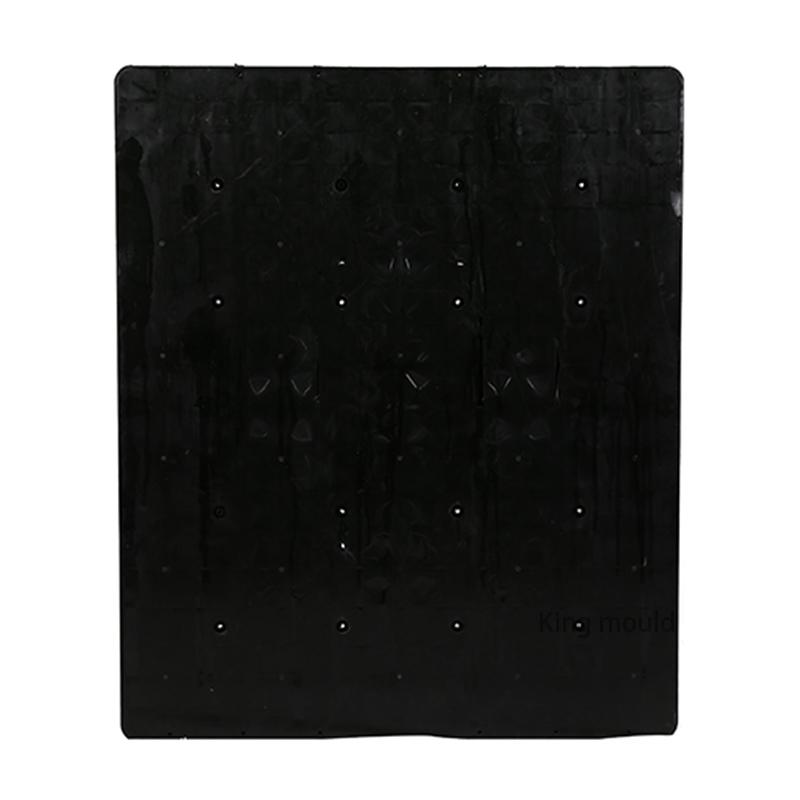In the dynamic world of design, functionality meets aesthetics to give rise to innovative solutions that redefine conventional norms. The Single-Sided Nine-Leg Pallet, a product of thoughtful design, exemplifies this intersection. This article delves into the designer's perspective on the Single-Sided Nine-Leg Pallet, examining its form, functionality, and the creative considerations that make it a distinctive and practical choice in the field of material handling.
The Artistry of Form:
At the core of the Single-Sided Nine-Leg Pallet's design is a departure from the conventional symmetry found in traditional pallets. The deliberate choice to incorporate nine legs on one side introduces a visually compelling asymmetry that captivates the observer. Designers, keen on merging form and function seamlessly, appreciate the aesthetic appeal this asymmetry brings to an otherwise utilitarian object.
The balance achieved through the nine-leg configuration is not only visually intriguing but also serves a functional purpose. The carefully calculated placement of legs ensures stability, turning a seemingly simple pallet into a work of functional art. Designers often find inspiration in such challenges, where aesthetics and functionality coalesce to create a harmonious whole.
Functionality as a Driving Force:
Designing a pallet that not only meets but exceeds the demands of material handling requires a deep understanding of functionality. The Single-Sided Nine-Leg Pallet excels in this regard, offering a practical solution to the challenges posed by transporting goods. Designers, conscious of the intricacies involved in material handling, approach the creation of such pallets with a focus on enhancing the user experience.
The asymmetrical leg arrangement, a hallmark of the Single-Sided Nine-Leg Pallet, provides a stable foundation for various types of cargo. Designers consider the weight distribution, ease of handling, and adaptability to different equipment, ensuring that the pallet seamlessly integrates into diverse operational environments. The form follows function, and in the case of this innovative pallet, both elements are inextricably linked.
Material Selection and Sustainable Design:
In the contemporary design landscape, sustainability is a driving force, and material choices play a pivotal role. Designers of the Single-Sided Nine-Leg Pallet consider not only the functionality and aesthetics but also the environmental impact of their creations. The selection of materials reflects a commitment to reducing the ecological footprint associated with material handling solutions.
Wood, plastic, and composite materials are among the options explored by designers, each with its unique set of advantages and considerations. The emphasis is on durability and recyclability, aligning with the principles of sustainable design. Designers aim to strike a balance between strength and environmental responsibility, ensuring that the Single-Sided Nine-Leg Pallet not only meets current needs but also aligns with future-oriented design practices.
User-Centric Innovation:
The Single-Sided Nine-Leg Pallet, as a product of design innovation, places the user experience at the forefront. Designers invest time in understanding the needs and challenges faced by those involved in material handling operations. The result is a pallet that not only meets the technical requirements but also enhances the overall efficiency and safety of the process.
Considerations such as ease of stacking, compatibility with handling equipment, and adaptability to different storage environments guide the design process. By prioritizing user-centric design, designers contribute to the creation of a product that seamlessly integrates into existing workflows, making a positive impact on the efficiency of material handling operations.
Conclusion:
The Single-Sided Nine-Leg Pallet stands as a testament to the symbiosis of form and function in the realm of design. Its asymmetrical elegance, combined with a meticulous focus on functionality and sustainability, makes it a noteworthy addition to the field of material handling solutions. From the creative minds of designers emerges a practical and visually appealing solution that not only meets the demands of industry but also elevates the everyday object to a work of thoughtful design.
